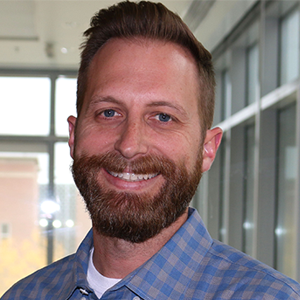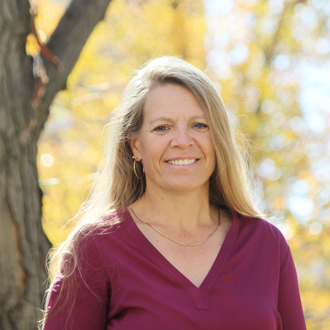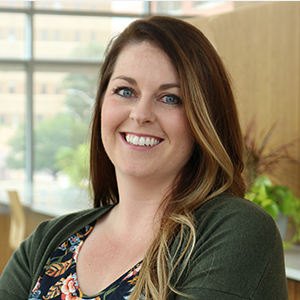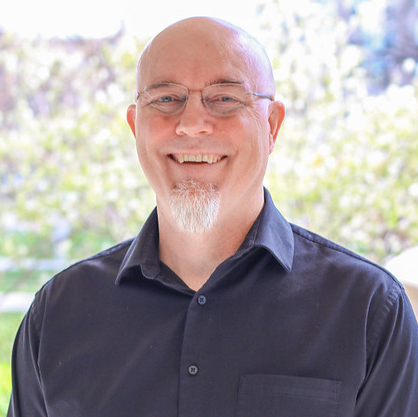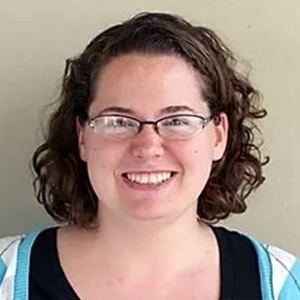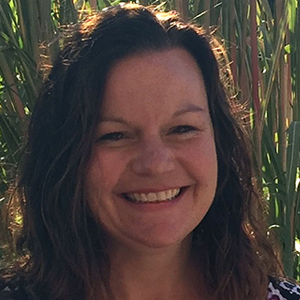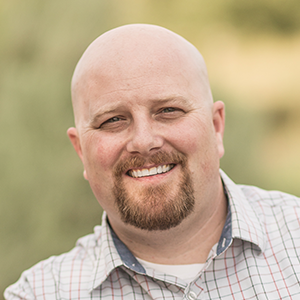Laboratory Experience
Undergraduate Program
Colorado Undergraduate Research in Environmental Health Sciences
If you’re an undergrad who is interested in environmental health, come join us for unique mentorship and research experiences.
The University of Colorado Anschutz Medical Campus Research Program in Environmental Health Sciences is a paid year-long research and mentorship opportunity specifically for sophomore or junior level undergraduate science majors, with students from first generation, low-income, and under-represented in health science careers encouraged to apply. This program is funded by NIEHS Grant R25 ES025476.
Our program includes:
- Full summer research and mentorship program (40 hours/week) and a school year research opportunity (10 hours/week)
- Research opportunities include environmental causes of kidney disease and cancer, climate and environmental justice, effects of chemical threat agents and inhaled pollutants, effects of climate-related exposures (e.g. wildfires), exposures to PFAS and pesticides, biomonitoring of environmental exposures.
- Mentoring on careers in environmental health sciences, applying to graduate or professional schools, responsible conduct in research
- Weekly presentations during the summer portion on many areas of environmental health sciences such as environmental justice and equity, environmental carcinogens, microbiome and environmental health, environmental exposures in kidney disease, and PFAS and health effects.
- Field trips during the summer, such as Rocky Mountain Arsenal, a former EPA superfund site for chemical weapons development.

Our 3-pronged approach to developing student commitment and interest in environmental health sciences research:
Education/Field Trips
Social/Community
The following selection criteria will be used to select the undergraduate students who will become trainees for our program:
(a) We welcome applications from any undergraduate students and encourage individuals who are underrepresented in health-related sciences to apply including undergraduate science majors from underrepresented minority populations and/or those students with disabilities or disadvantaged backgrounds.
(b) Individuals who are currently undergraduate science majors in their Junior or Senior year at the DTC or other local undergraduate institutions. There will be no preference on prior research experience, rather, we will base selection upon their interest in environmental health sciences.
(c) Individuals who have an exceptional academic record and potential as evidenced by:
(i) High School and College GPA ≥ 3.0,
(ii) SAT ≥ 30,
(iii) Stellar non-academic achievements records, and
(iv) Additional criteria - We recognize that some attractive candidates might not exactly meet all of the aforementioned substantial credentials. Therefore, each applicant will be evaluated on a case-by-case basis by the selection committee with a consultation. For example, some underrepresented and diverse individuals may be the first in their family to pursue this type of higher education and where appropriate that information will be considered as part of the application. Regardless, of this latter consideration, we will only enroll individuals who will be competitive for acceptance into a high-quality EHS graduate programs or professional schools and have a clear interest and aptitude for conducting research in the future.
(d) Individuals who have a desire to pursue a career in environmental health sciences research as evidenced by their application, the assessment of their teachers and advisors and/or any prior research experience.
(e) Individuals who are United States Citizens, non-citizen nationals of the United States or individuals who have been lawfully admitted for permanent residence (i.e. in possession of a currently valid Alien Registration Card I-55 or some other legal verification of such status).

Jared Brown PhD
Professor
Toxicology Graduate Program Director, T32 Training Program in Molecular and Systems Toxicology Director, Colorado Center for Nanomedicine and Nanosafety Co-Director
- Department of Pharmaceutical Sciences
Email Address:jared.brown@cuanschutz.edu
Primary Phone:303-724-8213
Mailing Address:
- CU Anschutz
Pharmacy and Pharmaceutical Sciences Building
12850 East Montview Boulevard
Lab: V20-3470A
Office: V20-3129
Aurora, CO 80045
Research in the Brown lab is focused on immune responses to particles including nanoparticles, air pollution, silica and coal dust. In particular, our research group investigates the role of innate immune cells, including mast cells and macrophages, in response to particles. In addition, we are interested in understanding the toxicity of engineered nanomaterials as well as their use in drug delivery and treatment of cancer.
Education, Licensure & Certifications
- BS, Colorado State University, Fort Collins, CO
- PhD, University of Montana, Center for Environmental Health Sciences, Skaggs School of Pharmacy, Missoula, MT
- Postdoctoral – Laboratory of Allergic Diseases, National Institute of Allergy and Infectious Diseases, NIH, Bethesda, MD

Jared Brown PhD
Professor
Toxicology Graduate Program Director, T32 Training Program in Molecular and Systems Toxicology Director, Colorado Center for Nanomedicine and Nanosafety Co-Director
- Department of Pharmaceutical Sciences
Email Address:jared.brown@cuanschutz.edu
Primary Phone:303-724-8213
Mailing Address:
- CU Anschutz
Pharmacy and Pharmaceutical Sciences Building
12850 East Montview Boulevard
Lab: V20-3470A
Office: V20-3129
Aurora, CO 80045
Research in the Brown lab is focused on immune responses to particles including nanoparticles, air pollution, silica and coal dust. In particular, our research group investigates the role of innate immune cells, including mast cells and macrophages, in response to particles. In addition, we are interested in understanding the toxicity of engineered nanomaterials as well as their use in drug delivery and treatment of cancer.
Education, Licensure & Certifications
- BS, Colorado State University, Fort Collins, CO
- PhD, University of Montana, Center for Environmental Health Sciences, Skaggs School of Pharmacy, Missoula, MT
- Postdoctoral – Laboratory of Allergic Diseases, National Institute of Allergy and Infectious Diseases, NIH, Bethesda, MD
John Adgate PhD, MSPH
Professor
Email: john.adgate@cuanschutz.edu
Phone: 303-724-4692
Shaodong Dai, PhD
Associate Professor
Email: shaodong.dai@cuanschutz.edu
Phone: 303-724-6562
Kristofer Fritz PhD
Associate Professor
Email: kristofer.fritz@cuanschutz.edu
Phone: 303-724-7932
Katherine Dickinson, PhD, MS
Associate Professor
Email: katherine.dickinson@cuanschutz.edu
Phone: 720-505-3958
Katherine James PhD, MSPH, MSCE
Associate Professor
Email:kathy.james@cuanschutz.edu
Phone:303-724-8169
Rebecca McCullough, PhD
Assistant Professor, Toxicology Graduate Program Associate DirectorPhone:303-724-6415
Jed Lampe, PhD
Associate Professor
Email:jed.lampe@cuanschutz.edu
Phone:303-724-3397
Vanessa Phelan, PhD
Assistant Professor
Email: vanessa.phelan@cuanschutz.edu
Phone: 303-724-3291
Nichole Reisdorph, PhD
Professor, Mass Spectrometry Facility Director
Email: nichole.reisdorph@cuanschutz.edu
Phone: 303-724-9234
John Repine, MD
Professor
Email: john.repine@cuanschutz.edu
Phone: 303-724-4788
James Roede, PhD
Associate Professor
Email: james.roede@cuanschutz.edu
Phone: 303-724-1348
Laura Saba, PhD
Associate Professor, Director
Email: laura.saba@cuanschutz.edu
Phone: 303-724-9697
Lee Newman, MD, MA
Distinguished Professor, Director (CHWE)
Email: lee.newman@cuanschutz.edu
Program Directors

Jared Brown PhD
Professor
Toxicology Graduate Program Director, T32 Training Program in Molecular and Systems Toxicology Director, Colorado Center for Nanomedicine and Nanosafety Co-Director
- Department of Pharmaceutical Sciences
Email Address:jared.brown@cuanschutz.edu
Primary Phone:303-724-8213
Mailing Address:
- CU Anschutz
Pharmacy and Pharmaceutical Sciences Building
12850 East Montview Boulevard
Lab: V20-3470A
Office: V20-3129
Aurora, CO 80045
Research in the Brown lab is focused on immune responses to particles including nanoparticles, air pollution, silica and coal dust. In particular, our research group investigates the role of innate immune cells, including mast cells and macrophages, in response to particles. In addition, we are interested in understanding the toxicity of engineered nanomaterials as well as their use in drug delivery and treatment of cancer.
Education, Licensure & Certifications
- BS, Colorado State University, Fort Collins, CO
- PhD, University of Montana, Center for Environmental Health Sciences, Skaggs School of Pharmacy, Missoula, MT
- Postdoctoral – Laboratory of Allergic Diseases, National Institute of Allergy and Infectious Diseases, NIH, Bethesda, MD



